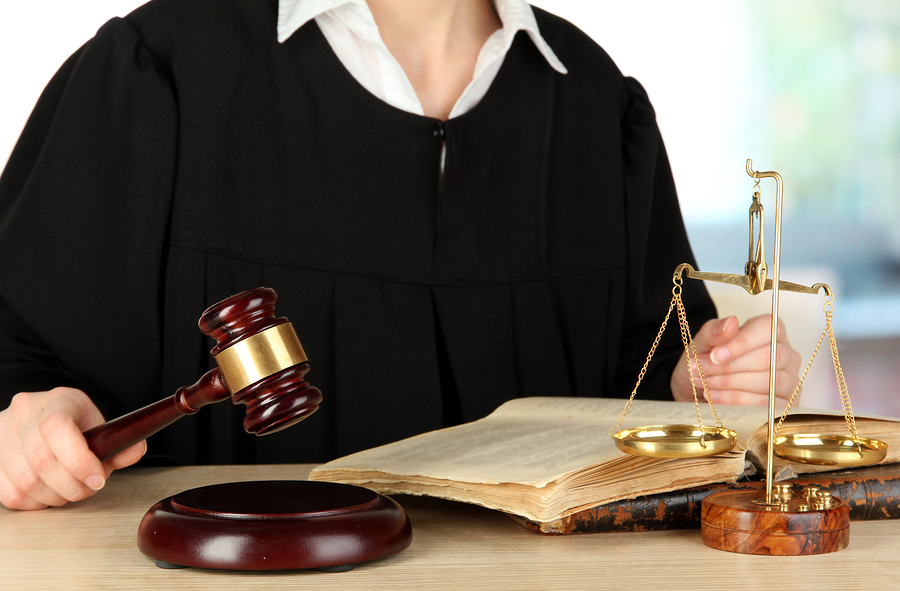
The Formal Criminal Arraignment Process in Pennsylvania
The justice system can be confusing, especially for people who have never been charged with a crime and don’t know what to expect after an arrest. However, the more you understand about the legal process, the more comfortable and confident you can feel as your court date approaches. In this article, our Berks County DUI lawyer explains how Pennsylvania’s arraignment process works.
What Happens at Arraignment?
When people think about court procedures, what they are usually picturing is a trial, where evidence is analyzed in order to determine whether a defendant is innocent or guilty of an alleged crime. However, trial is not the same thing as arraignment, which is a separate matter altogether.
Arraignment typically takes place about It is the defendant’s first appearance before a judge, and the first step of the legal process following an arrest. Several important matters take place during arraignment, but the process is slightly different depending on whether the charges are considered misdemeanor or felony. (Some examples of misdemeanor charges include DUI and simple assault, while some examples of felony charges include rape, murder, and robbery.)
In some instances, you may not have to appear at your arraignment at all, provided your attorney prepares a waiver. However, if you fail to appear and have not signed a waiver, the judge can issue a bench warrant for your arrest.
If the charge is a misdemeanor:
- You will be informed of the specific charges against you, including the potential penalties you face if you are later convicted.
- You will be informed that you have a right to a defense attorney, or, alternately, a public defender.
- You will be informed that you have a right to a trial. It’s important to note that in Pennsylvania, ungraded misdemeanors (including most DUI charges) do not warrant a trial by jury, meaning you will have a bench trial if it is your first offense. A bench trial involves only a judge, and no jury.
- You will enter a plea. If you plead not guilty, a trial date will be scheduled for the future. If you plead not guilty, the judge will also set your bail, which is amount of money you have to pay if you want to be free from custody until your trial date arrives. If you do plead guilty, the judge may impose a sentence (or probation) then and there, or may set a sentencing date for the future.
The process is very similar for felony charges, though there are several key differences:
- You will be given the right to a jury trial.
- You will not enter a plea of guilty or not guilty. Instead, that takes place during an additional step called the preliminary hearing. However, the judge will still set your bail.

What Happens at a Preliminary Hearing?
If you are charged with a felony, you do not enter a plea during your arraignment. Instead, your plea is entered during an additional stage of the process called a preliminary hearing, which takes place prior to arraignment in a district court before a district judge. Attorneys sometimes refer to this hearing as the “prelim.”
The purpose of the preliminary hearing is simply to determine whether there is enough evidence against you for the case to move forward. The prosecutor must prove two things: that a crime was committed, and that you were probably the person who committed that crime. This is referred to as prima facie evidence. However, this process is not the same as actually finding you guilty; simply that you are a plausible suspect.
If the prosecutor succeeds in meeting the burden of proof, the judge will set a date for your arraignment. However, if the prosecutor fails, the judge may dismiss the charges against you, at which point you are free to go.
Negotiations may take place during this hearing, and in some cases, may even lead to a plea agreement, which means it is extremely important to have your criminal defense attorney with you. A plea agreement — which is also called a negotiated plea, plea deal, or plea bargain — means that the defense and prosecution reach a mutual agreement regarding a sentence for the defendant. This deal may or may not be accepted by the judge.
On a final note, you may waive your right to a preliminary hearing, but should weigh this decision carefully with your attorney first.
If you have been charged with a crime, you need a Pennsylvania criminal defense attorney on your side to protect your legal rights and guide you through the court process. To set up a free and confidential case evaluation, call the law offices of Young, Marr, Mallis & Associates at (609) 755-3115 in New Jersey or (215) 701-6519 in Pennsylvania today.






